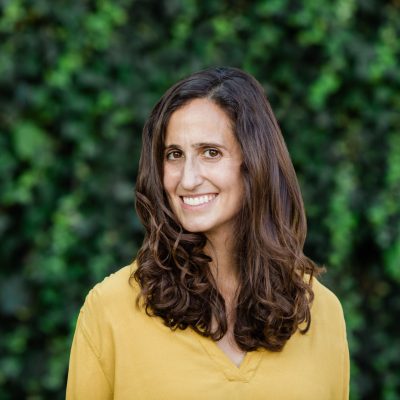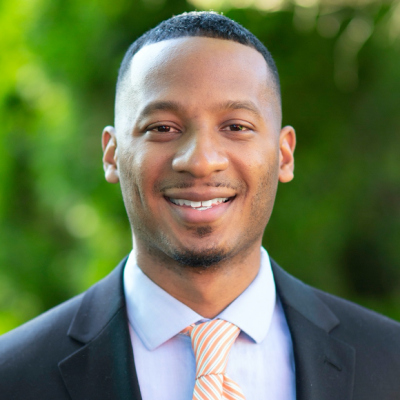Article
During Senior Fellow Zaakir Tameez’s time with Humanity in Action, he distinctly recalls a memorable moment while touring Sachsenhausen, a Nazi concentration camp north of Berlin. Hundreds of thousands of Jews, homosexuals, communists, social misfits and Jehovah’s Witnesses were labored and slaughtered there. They learned about how after liberation, the Soviets converted it into a labor camp of their own before memorializing it for the “Anti-Fascists of Europe.” Zaakir questioned:
“Why were we, sitting in a circle after the tour, intellectualizing different perspectives on the camp’s history, instead of just remembering and feeling for the dead?”
“Here I realized that forgetting the power of knowledge, and purifying it of emotion, is dangerous. Sachsenhausen wasn’t built by ignorant barbarians. What makes it so terrifying is that the concentration camp was designed by architects, engineers, doctors, lawyers, politicians, and professors.”
However, in academia, human emotions can sometimes be too much to ask for. During the Fellowship discussion at Sachsenhausen, Zaakir realized that education is a tool. It can be used to spread good, promote justice and secure peace. But it can also be used to perpetrate violence and institutionalized racism. Humanity in Action has helped Zaakir think about education’s powerful ability to influence society and reflect on how to create educational institutions for the sake of the human good.

In the aftermath of the Charlottesville riots, the key questions for Zaakir were, “What is the role of colleges, such as the University of Virginia, in a civic democracy? How do we move forward? How do we memorialize our troubling history?”
Zaakir returned from Humanity in Action Berlin to Charlottesville, Virginia, where he attended college. As a student at the University of Virginia (UVA), he arrived at the same time as hundreds of white supremacists, Nazis and KKK members trampled the campus and downtown Charlottesville for the infamous ‘Unite the Right’ rally. The hateful, supremacist and violent rioters assaulted community members while carrying guns and donning Nazi flags. One fascist mauled a counter-protester with his car, injuring a friend of Zaakir, who was resisting. This experience was a dramatic, painful reminder for Zaakir of why organizations like Humanity in Action are so important.
Zaakir is passionate about public and higher education’s relationship with civic democracy. He has demonstrated this through a statewide initiative that he started after his Humanity in Action Fellowship: The Millennial Civic Engagement Task Force. He successfully lobbied for the creation of the task force, which was established by an executive order from then-Governor Terry McAuliffe. Zaakir was appointed as the task force’s co-chair, where he led 30 students, several government officials and academics, and 2 university presidents. Together, they hosted 16 roundtables around Virginia colleges and universities to talk about one of the most fundamental issues in our democracy: voting rights.
Zaakir exclaims that:
“Humanity in Action was instrumental in helping me establish my interests, passion and life trajectory.”

The task force worked to identify the specific ways that student voters are disenfranchised and how to address them. They also thought about civic engagement more broadly, to assess how younger generations think about civic institutions and civic involvement. One of their accomplishments was moving polling locations, such as on his campus at UVA. They successfully pushed to move the polling location to a building closer to student housing and established busses to provide transportation for those who did not have any.
Zaakir also founded the Muslim Institute for Leadership and Empowerment (MILE), a leadership program for diverse students of any form of Muslim background. The Institute developed a rigorous curriculum on civic engagement, Islamic leadership principles, and university history. The program helps Muslim students think critically about their role as college students in fighting for justice and combines both religious and academic principles into a social justice framework within a higher education setting.
As an avid researcher, Zaakir worked for the Nobel Laureate in Economics, Joseph Stiglitz, a professor at Columbia University. The primary issue that he studied was Puerto Rico’s debt crisis. Zaakir helped edit an extended paper with Professor Stiglitz and Martin Guzman, then-professor at Columbia and now Minister of Economy of Argentina. The paper laid out plans for how to restructure the territory’s debt in ways that will actually benefit the people of Puerto Rico, not just the creditors. Zaakir recalls how Humanity in Action demonstrated
“how everything – everything in life – has a social justice element to it. Even seemingly mundane aspects of our lives, like social media or online shopping, has implications on equality, liberty, pluralism and democracy. Humanity in Action has helped me to always use the lens of pluralism when studying anything.”
Their love for research and desire to engage with different viewpoints led Zaakir and Helen Kramer, another HIA Senior Fellow, to team up to work on their Action Project. They got in touch with Dr. Jonathan Haidt, a prominent US public intellectual and professor who discusses campus viewpoint diversity. They suggested to him that the student activist’s perspective on belongingness uncertainty needs to be incorporated into his work, and he agreed. In turn, Helen worked with him to make edits to several parts of “The Coddling of the American Mind” before its publication in the summer of 2018. They have been in conversation with Heterodox Academy to include student activists’ arguments into the organization’s critique and understanding of free speech and viewpoint diversity on campuses.
They are aspiring to create a university that is not only great, but also good. Thus, they are working to strengthen and heal relationships between the university and the surrounding community.
After graduating from college, Zaakir worked for the new President of UVA, Jim Ryan. Pres. Ryan is a legal scholar on public school funding equity and desegregation. He aspires to create a university that is not only great, but also good. To this end, they are working to strengthen and heal relationships between the university and the surrounding community. This work gave Zaakir an executive-level insight on how educational institutions can truly serve the public good.
In this role, as Presidential Fellow, he was a team member on several projects. These include building University-Community Partnerships on four priorities: Living Wages, Affordable Housing, Public Healthcare, and Youth & Education in Charlottesville. Zaakir was also helping to design future initiatives to attract & support first-generation students and establish public service programs, such as a potential undergraduate loan forgiveness plan. Finally, Zaakir assisted the University in navigating the covid-19 pandemic by advocating for equity in both campus shutdown and reopening policies.
Zaakir then attended Queen Mary University of London as a Fulbright Scholar, where he studied for an LLM degree in Law and Economics. He pursued this degree to further develop his undergraduate thesis, supervised by the UVA antitrust professor Kenneth Elzinga, on “Antitrust and Big Tech.” At Queen Mary, studied the divide between European, British, and American tech antitrust policy. Partnering with Professor Garry Gabison, Zaakir also wrote two law review articles on the anticompetitive practices of big pharmaceutical companies.
After this one-year program, Zaakir attended Yale Law School for a J.D. program. During his first year, he partnered with antitrust professor Fiona Scott Morton on several projects. He also co-presented a paper on information sharing in the meat processing industry, which was the prestigious national winner of the Best Student Article Award at the 2023 Antirust Writing Awards Ceremony in Washington, D.C.
During his second year, Zaakir took the class “Reading the Constitution” with Professor Akhil Reed Amar. The class exposed him to the legal genius of Abraham Lincoln and the Radical Republicans – whom Amar calls America’s “Second Founders.” After the Civil War, these Second Founders reframed the Constitution by giving it a “new birth of freedom,” in Lincoln’s words, that was centered on liberty and equality for everyone regardless of race. Motivated by the class, Zaakir began writing a paper about Charles Sumner – one of the leading Second Founders.
With Professor Amar’s encouragement, Zaakir’s paper on Sumner expanded into a full-length book project. After winning a contract with Macmillan and earning research credits from Amar and other professors, Zaakir devoted the rest of his time in law school to writing the book. The book has been praised by two Pulitzer-prize winning historians, the former president of Harvard University, and the current president of the National Constitution Center.
In a comprehensive but fast-paced narrative, Zaakir presents Sumner as one of America’s forgotten founding fathers, a constitutional visionary who helped to rewrite the post–Civil War Constitution and give birth to modern civil rights law.
Zaakir’s book is a landmark biography of Charles Sumner, who is mainly known as the abolitionist statesman who suffered a brutal caning on the Senate floor by the proslavery congressman Preston Brooks in 1856. This violent episode has obscured Sumner’s status as the most passionate champion of equal rights and multiracial democracy of his time. A friend of Alexis de Tocqueville, an ally of Frederick Douglass, and an adviser to Abraham Lincoln, Sumner helped the Union win the Civil War and ordain the Emancipation Proclamation, the Thirteenth Amendment, the Freedmen’s Bureau, and the Civil Rights Act of 1875. Learn more about the book here, on sale from June 3rd, 2025.
In a comprehensive but fast-paced narrative, Zaakir presents Sumner as one of America’s forgotten founding fathers, a constitutional visionary who helped to rewrite the post–Civil War Constitution and give birth to modern civil rights law. He argues that Sumner was a gay man who battled with love and heartbreak at a time when homosexuality wasn’t well understood or accepted. And he explores Sumner’s critical partnerships with the nation’s first generation of Black lawyers and civil rights leaders, whose legal contributions to Reconstruction have been overlooked for far too long.
An extraordinary achievement of historical and constitutional scholarship, Charles Sumner brings back to life one of America’s most inspiring statesmen, whose formidable ideas remain relevant to a nation still divided over questions of race, democracy, and constitutional law.
Zaakir recently introduced his new book on the “Keen On” show with Andrew Keen:
Moving forward, Zaakir is pursuing a career as a litigator and scholar of antitrust and constitutional law.
Updated May 2025
More from Zaakir Tameez
-
Charles Sumner: Conscience of a Nation
Senior Fellow Zaakir Tameez publishes landmark biography of Charles Sumner, the abolitionist statesman who suffered a brutal caning on the Senate floor by the proslavery congressman Preston Brooks in 1856.
-
18th LaFontaine-Baldwin Lecture: A Response
Join Senior Fellows Mariko Silver and Zaakir Tameez online from 1:00pm-2:00pm EDT on October 15, 2020, for the response to the 18th LaFontaine-Baldwin Lecture to hear from diverse leaders from Canada and around the world on paths to moral and civic renewal following the COVID-19 crisis.
-
Thank you to our 2020 US Review and Admissions Committees
As every year, Humanity in Action received many applications for our Fellowships in Europe and Atlanta this year. We are so grateful to the dedicated Senior Fellows and friends who volunteered their time and energy in reading and reviewing applications.
-
Lessons from Charlottesville
When Natalie Romero, a Houstonian like me, regained consciousness in her Charlottesville, Va., hospital bed she was confused and delirious. We had to explain to her, as matter-of-factly as we could, what happened.
-
Thank you to our 2019 US Review and Admissions Committees
-
Values in Collision: Reconciling Viewpoint Diversity and Social Justice on Campus
Values in collision: Reconciling Viewpoint Diversity and Social Justice on Campus, aims to help viewpoint-diversity advocates understand social justice activism and incorporate minority perspectives into their methodology




